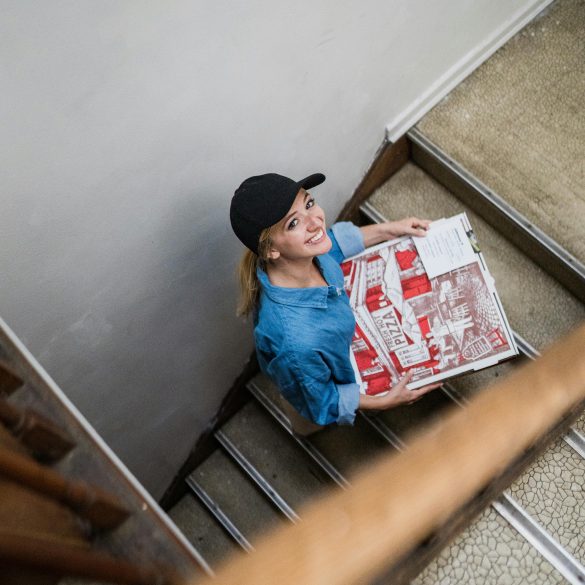Brazil Digital Nomad Visa Guide: Sustainable Remote Work & Local Living
If you told me five years ago that Brazil would become one of the premier spots for remote work on a legal visa, I’d have questioned your optimism—back then, WiFi in some parts genuinely felt like rolling the dice each morning. Fast forward to 2025, and Brazil’s digital nomad visa is getting buzz in global forums, Slack channels, and even mainstream news1. What’s wild is how fast the travel landscape is evolving, and honestly, my own experiences working remotely from Florianópolis to São Paulo changed the way I think about balancing meaningful work, local immersion, and sustainability in one of the world’s most diverse destinations.
Let’s pause for a second: Why do so many digital nomads—especially post-pandemic—find themselves drawn to Brazil? It’s not just the sun or samba vibes. There’s powerful energy here, a mix of tech-forward workspaces, nature reserves, and a pretty extraordinary new openness from the Brazilian government. The digital nomad visa has opened doors—literally!
Brazil launched its official Digital Nomad Visa in 2022, allowing remote workers to legally live and work anywhere in the country for up to a year—renewable for another year. It’s one of Latin America’s most flexible remote work permits.2
Here’s my promise: This is not a generic, pie-in-the-sky travel wishlist. Instead, consider this your real-world, step-by-step playbook for making Brazil your next remote work base—while living sustainably, navigating legalities, and connecting meaningfully with local communities. In the following sections, I’ll break down everything you need to know, drawing on first-hand experience, current legal sources, expert commentary, and real community insights.
Why Brazil for Digital Nomads?
To kick us off, let me ask: When you think “Brazil,” what comes to mind? Beaches, Carnival, football… but for digital nomads, Brazil is morphing into something bigger: a dynamic, affordable, and surprisingly accessible base for remote professionals looking for flexible work structures, vibrant city life, and direct access to nature. Plus, it’s got enough coworking innovation to rival Berlin or Bali—at a fraction of the price.3
- Year-round pleasant weather (with seasonal travel options)
- Affordable accommodation, coworking spaces, and public transport
- Growing digital nomad communities in cities and nature hubs
- Advanced internet infrastructure in urban centers like São Paulo
- Legal right to stay up to 2 years with minimal red tape
What really catches my attention, though, is Brazil’s unique approach to embracing remote work—a kind of “Brazilian hospitality meets digital future.” You won’t find many places that blend genuine local warmth with a hands-off visa application, all while actively encouraging environmental responsibility.
Digital Nomad Visa Requirements & Process
Okay, so you’re enticed—how do you actually get the visa? That’s where things get granular, and I’ll admit I made some minor mistakes (like missing a notary stamp, which meant a two-day scramble in downtown Florianópolis…classic rookie move). But honestly, Brazil’s requirements are refreshingly clear compared to, say, Thailand or Portugal.5
- Proof of remote employment or business activity (can be self-employed)
- Valid passport with at least six months validity
- Proof of minimum income: $1,500/month or $18,000 savings
- Comprehensive health insurance covering Brazil
- Background check and notarized documents
The entire process is managed through the Brazilian Ministry of Justice’s online platform, and you can apply from abroad before traveling. From personal experience, the hardest part isn’t the paperwork—it’s getting the insurance form accepted (tip: check if your insurer is familiar with Brazilian health requirements before purchasing). Approval typically lands within 4-8 weeks.6
Honestly, knowing what I know now, I’d have started my paperwork earlier and leaned more heavily on online expat forums for country-specific tips.
How to Work Remotely in Brazil: Setup, Culture, and Connectivity
Working remotely in Brazil. Easy, right? Well—yes and no. What struck me most during my months in Bahia was how dramatically the workday can shift based on where you are, your tech setup, and just plain old local rhythms. For instance, the coast is notorious for sunrise jogs before breakfast; São Paulo’s coworking spaces tend to fill up by 8:30 a.m. sharp. In my experience, blending local customs with your remote routine isn’t just respectful—it’s a game-changer for productivity.7
Here’s a quick anecdote: I was wrapping a strategy call for a US client while sipping coffee in an eco-hostel outside Florianópolis. The hostel’s WiFi blipped out mid-call—the owner shrugged, brought me a USB modem, and said, “Bem-vindo ao Brasil!” I learned fast: always have a Plan B for connectivity, and double-check the upload speeds before committing to long-term accommodation.
- Opt for coworking hubs in major cities: São Paulo, Rio, Florianópolis
- Buy a local SIM card with unlimited data—major carriers like Vivo & Claro
- Choose accommodation with backup internet options (and generators in rural areas)
- Schedule meetings around local holidays and festivals (trust me, it’s essential)
- Leverage virtual communities like Meetup, Nomad List, and Telegram groups
“Brazil’s digital infrastructure has improved rapidly since 2020, but true connectivity still depends on region and local providers. Testing bandwidth before you arrive is the only approach I recommend.”
On second thought, maybe I should clarify something about time zones. Brazil spans multiple zones, and daylight savings shifts can affect your global work schedule. I always confirm local times for meetings, set dual clocks, and even keep backup calendar invites for clients—nothing says “professional” like avoiding those awkward 5 a.m. surprises.
| City | Average Coworking Cost (USD) | Internet Speed (Mbps) | Remote Nomad Community Size |
|---|---|---|---|
| São Paulo | $85/month | 75+ | Large (5,000+) |
| Florianópolis | $50/month | 60+ | Medium (1,200) |
| Rio de Janeiro | $90/month | 70+ | Large (4,000+) |
| Fortaleza | $40/month | 55+ | Small (500+) |
Sustainable Living in Brazil: Beyond the Tourist Trail
Living sustainably in Brazil isn’t something you tick off a list—it’s baked into daily life, especially once you tune into the local scene. The emphasis on conservation, eco-tourism, and minimal-impact living is palpable in many communities, particularly outside metros. Sure, big cities have their challenges (congestion, plastic use), but alternatives abound if you know where to look.
- Shop local and organic at weekly feira (markets)—support small producers
- Use public transit (Metro, BRT), bikes, or rideshares when possible
- Consider hostels or guest houses certified by the Brazilian EcoTourism Organization
- Choose reusable water bottles and bags; plastic bans in many cities
- Volunteer with community beach or forest cleanups—find projects via Facebook groups
“I see a new generation of travelers prioritizing sustainable actions—not only because it’s trendy, but because the Brazilian environment demands it. Low-impact living here isn’t just recommended; it’s respected.”
A point of personal reflection: During Carnival last year, I joined a local river cleanup near Recife—we filled 14 bags of trash in 2 hours. Most volunteers were fellow remote workers. That morning changed my perception: sustainability isn’t just about reducing your footprint. It’s about contributing, learning, and making real connections with local groups.
Brazil is home to over 470 officially registered conservation units, covering 17% of its total land area. Many offer guided sustainable tours for new arrivals.8
The more you engage with sustainability, the more you’ll find local wisdom and partnerships unlocking “hidden” healthy routines—plus, it’s great for those seeking a balanced lifestyle while working remotely.
Community Integration for Digital Nomads
Integrating with Brazilian communities as a digital nomad is a two-way street. In my opinion, you’ll get out what you genuinely invest—whether that’s learning Portuguese phrases, joining local WhatsApp study groups, or attending events. I used to think passive observation was enough, but participation really deepens the experience.
- Attend coworking-hosted events—hackathons, language exchanges, local lectures
- Explore local social initiatives (environmental, social entrepreneurship, arts)
- Find mentor or buddy programs for practical help
- Join digital nomad social media channels (Facebook, Telegram, LinkedIn groups)

Cost of Living & Lifestyle Comparison: Budgeting for Sustainable Remote Work in Brazil
Let’s get practical for a minute. Brazil’s affordability is a major draw for digital nomads, but real costs can still surprise you—especially if you’re used to Southeast Asia or Eastern Europe rates. From my own spreadsheet tracking spending in Rio, Florianópolis, and Salvador, it’s clear: living sustainably while working remotely doesn’t mean living cheap, but it does mean making smart choices.9 What puzzles me sometimes is the perception that Brazil is always “cheap”—costs vary wildly by city, time of year, and your work habits.
| Expense Category | São Paulo | Rio de Janeiro | Florianópolis |
|---|---|---|---|
| Accommodation (1 bed apt/month) | $470 | $380 | $300 |
| Coworking Space | $85 | $90 | $50 |
| Public Transport | $45 | $38 | $32 |
| Social/Sustainable Activities | $60 | $55 | $40 |
| Groceries (local/organic) | $180 | $155 | $130 |
What I often recommend to fellow nomads is setting your budget based on your preferred work rhythm. For instance, if you do most of your work in the evenings (which is common—thanks to time zones), consider cheaper accommodation outside the city center. Grocery spending fluctuates: local organic costs can be much lower at neighborhood markets but definitely add up at larger grocery chains.
- Negotiate monthly rates for both accommodation and coworking spaces
- Embrace local cuisine—cooked meals are often healthier and more affordable
- Join local WhatsApp groups for apartment deals and travel tips
- Bike or walk—reduces costs and carbon footprint
- Plan your travel by season—off-season rates are significantly lower
“Working remotely in Brazil gave me a new sense of financial freedom. The balance between affordable living and high quality of life is something I haven’t replicated elsewhere.”
Safety, Seasonality, and Accessibility for Remote Workers
A concern I hear often (and wrestle with myself) is the safety factor—especially for newcomers. Brazil is full of welcoming, safe communities, but there’s no denying the challenges in some urban and rural areas. The trick is to stay informed: connect with local groups, read up on current events, and always—repeat, always—ask locals before venturing into unfamiliar neighborhoods.10
- High season (Dec-March): hot, busy, best for festivals
- Low season (May-Oct): mild, budget-friendly, ideal for work focus
- Rainy season varies by region—check weather apps before booking
Accessibility for people with disabilities is improving, but be prepared for limited infrastructure outside major hubs. I once traveled with a colleague in a wheelchair across Bahia; some places were incredibly accessible, but others honestly weren’t. Always research your destination’s accessibility, and contact accommodation ahead of time.
Brazil’s National Travel Accessibility Initiative, launched in 2022, mandates improved mobility features for hotels, coworking spaces, and transit hubs.11
Building a Future-Proof Remote Work Plan in Brazil
On second thought, let me step back and answer a question that gets tossed around in professional circles: “How do I make my remote work setup future-proof in Brazil?” The answer shifts alongside tech advances, new government initiatives, and evolving global best practices.12
- Stay current with immigration updates—Brazil’s visa policy evolves rapidly
- Invest in professional development—local conferences, webinars available online
- Save a digital backup of essential docs (cloud + encrypted USB)
- Network locally—future job leads often begin in coworking events
- Monitor sustainability trends and incorporate eco-friendly habits for long-term benefit
“The best part about being a digital nomad in Brazil is the constant evolution—you’re never stuck in one routine or city. Flexibility is your greatest asset.”
The Future of Digital Nomad Life in Brazil: Sustainability, Adaptability, and Local Impact
Looking ahead, Brazil’s digital nomad environment is only set to grow—if recent visa statistics and urban coworking launches are anything to go by.13 I’m still learning about the actual long-term outcomes of these new programs, but the early indicators (from both government and academic studies) suggest Brazil is poised to become one of South America’s key hubs for remote work. From my perspective, adaptability is essential. Nomad life here isn’t static—your best experiences will come from embracing local rhythms, upgrading your sustainability skills, and staying open to new collaborations.
Here’s what I’ve consistently observed: every digital nomad cohort brings new priorities, whether it’s networking, beach volunteering, or seeking the elusive perfect work-life balance. In cities like Belo Horizonte, tech meetups mingle with environmental seminars—creating a culture where “professional” and “sustainable” merge. The biggest wins, honestly, come from taking calculated risks, staying curious, and actually listening to local expertise.
Summary: Your Actionable Brazil Digital Nomad Visa Game Plan
- Research current visa requirements and begin application 90+ days in advance
- Choose sustainable accommodation and join community initiatives where possible
- Plan work hours to maximize local immersion and sustainability efforts
- Audit your tech setup (backup devices, internet redundancy)
- Budget for real costs—not just what travel forums say
- Network at locals’ events and skill workshops—connections = opportunities
- Prioritize language learning and cultural curiosity as part of your daily routine
“Don’t view remote work in Brazil as an extended workation. To thrive, treat it as a living, evolving career adventure—where your impact is felt by both you and your local community.”
In all honesty, my thinking has evolved since first arriving on a tourist visa—what started as a way to save money and escape winter became a journey into local activism, fresh professional skills, and long-term friendships. It puzzles me sometimes how overlooked Brazil was in remote work circles just a few years ago, but the transformation is unmistakable.
Since its launch, Brazil’s digital nomad visa has issued over 8,000 permits as of mid-2025, with a renewal rate above 65%—higher than most European destinations.14
References
Citations & Further Reading
Final thought: Brazil’s not just a tropical backdrop for your Zoom calls. It’s a place where you can truly reimagine what meaningful, future-proof remote work feels like—if you’re ready to participate, adapt, and leave things a little better than you found them.



